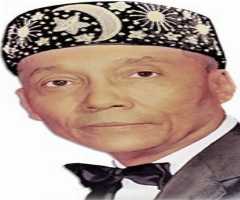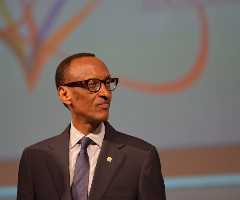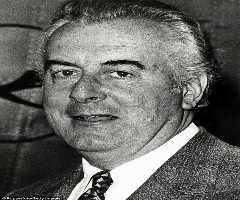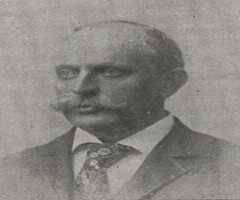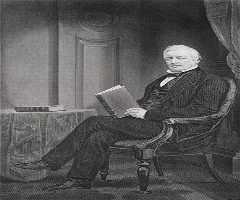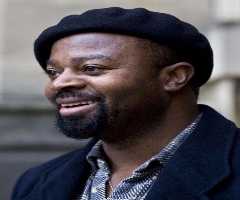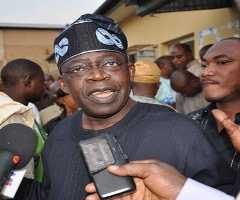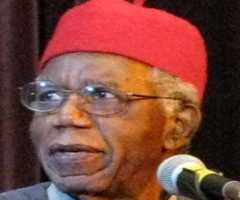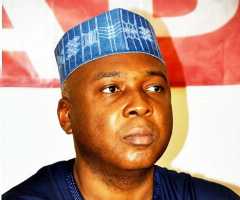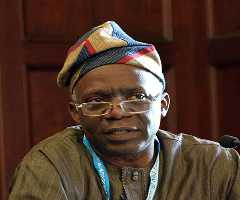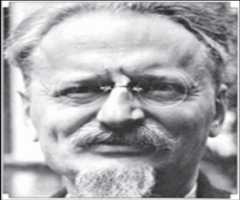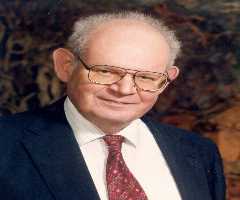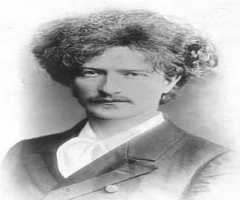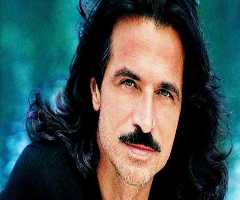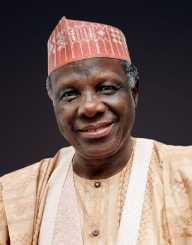
Benjamin Nnamdi Azikiwe Biography, Life, Interesting Facts
Benjamin Nnamdi Azikiwe was a high-rank Nigerian politician and nationalist and a journalist. Born on November 16, 1904, he was the last Governor-General of Nigeria and became the countries, first president, after it gained a republic status in 1963. He held the office until 1966 taking Nigeria through its first republic rule. Even before entering into politics, Azikiwe championed African nationalism through his journalism. He was a journalist in Gold Coast presently Ghana, where he first worked for Africa Morning Post, a daily newspaper in Ghana after his university education in 1934.
Early Life And Education
Benjamin Nnamdi Azikiwe was born on November 16, 1904, in Zungeru, Northern Nigeria to Obed-Edom Chukwuemeka Azikiwe and Rachael Chinwe Azikiwe. Benjamin Nnamdi Azikiwe has a sister Cecilia Eziamaka Arinze. Born in the Northern part of Nigeria, Benjamin Nnamdi Azikiwe was very in Hausa, which made his father move him to Onitsha to live with his grandmother and aunt in order to learn the Igbo language. While there, he started his education at a Roman Catholic Mission school, Holy Trinity School. Benjamin Nnamdi Azikiwe then moved to an Anglican school, Christ Church School. Benjamin Nnamdi Azikiwe later left for Lagos to continue his education since his father had been transferred there.
Two years on, Benjamin Nnamdi Azikiwe was transferred from Lagos to Kaduna, and therefore Benjamin Nnamdi Azikiwe briefly lived with a relative before returning to Onitsha in 1918. He then attended CMS Central School where he completed his elementary education and taught there as a pupil teacher for a while. Upon his father’s transfer to Southern Nigeria’s city of Calabar Benjamin Nnamdi Azikiwe joined him there to have his secondary school education at the Hope Waddle Training College in 1920. Benjamin Nnamdi Azikiwe continued his education at the Methodist Boys High School in Lagos.
Quest To Study Abroad
Benjamin Nnamdi Azikiwe was accepted for a colonial service as a clerk in the treasury after his secondary education. All this while he had a dream of traveling abroad to continue his education. Benjamin Nnamdi Azikiwe, therefore, applied to several universities in the United States and lucky for him, Storer College responded. However, this came with a challenge since the president of the college, said he will only be accepted if he could make his way there. Benjamin Nnamdi Azikiwe picked up the challenge and decided to embark on a stowaway by arranging with a seaman. While on the trip, one of his friends fell sick so was advised to disembark the trip in Sekondi, Ghana.
Benjamin Nnamdi Azikiwe was employed as a police officer, while in Ghana and after sometimes there, his mother visited to request his return to Nigeria. Though Benjamin Nnamdi Azikiwe was reluctant, he finally left and was met with good news as his father was prepared to sponsor the trip for his education in the US. Benjamin Nnamdi Azikiwe finally arrived in the United States to enroll at the Storer College in Harpers Ferry, West Virginia for two years. To support his studies, Benjamin Nnamdi Azikiwe picked up several odd jobs. He gained a transfer to Howard University, Washington DC and later enrolled at the Lincoln University, Pennsylvania where he graduated in 1930.
He received a master’s degree in Religion in 1932 and another in master’s degree in Anthropology in 1934 all at University of Pennsylvania. After his education, he instructed at the history and political science department at Lincoln and created an African history course there. He did his doctorate at Columbia University before returning to Africa in 1934.
Career As Journalist
On his return, Benjamin Nnamdi Azikiwe hoped to gain employment as a foreign official for Liberia, but since he wasn’t a native of the country, he was rejected. Benjamin Nnamdi Azikiwe then returned to Nigeria amidst a mammoth welcome as he was seen as a public figure. His aim to be gainfully employed in Nigeria also proved futile hence accepted an offer as the founding editor of African Morning Post, in Ghana in from a Ghanaian businessman, Alfred Ocansey. As an editor, he was given free hands to operate and had a personal column Inside Stuff by Zik.
Benjamin Nnamdi Azikiwe used that platform to promote black pride and African nationalismBenjamin Nnamdi Azikiwe vehemently criticised Africans who belonged to the elite of the colonial rule. He propagated the idea of New Africa and black man philosophy, which he expanded into his book, Renascent Africa.
His proposed New Africa was one free from ethnic affiliations and traditional authorities and transform under five philosophical pillars being, economic determinism, mental emancipation, spiritual balance, social regeneration and national Risorgimento. On May 15, 1936, Benjamin Nnamdi Azikiwe published an article by I.T.A Wallace-Johnson titled "Has the African a God?" of which he was charged with sedition. He was found guilty and sentenced to six months in prison, but upon an appeal, Benjamin Nnamdi Azikiwe was acquitted. In 1937, Benjamin Nnamdi Azikiwe returned to Nigeria to start the West African Pilot newspaper alongside others under the Zik Group of Newspapers. Through the West African Pilot, he promoted Nigerian nationalism.
Political Career
Benjamin Nnamdi Azikiwe political activities started even when he was in Ghana, as he joined theMalili party. When he returned to Nigeria, he joined the Nigeria Youth Movement, whose ideology was set on nationalism. Benjamin Nnamdi Azikiwe, however, resigned after claims of discrimination from the majority Yoruba against the minority Ijebu-Yoruba members and Ibos members. Benjamin Nnamdi Azikiwe got into active politics in 1944 by partnering Herbert Macaulay to co-found the National Council of Nigeria and the Cameroons (NCNC). Two years later he became the secretary-general.
Benjamin Nnamdi Azikiwe became the leader of the party when Macaulay died. The two were embarking on a tour to the United Kingdom to protest against the then British governor to Nigeria Arthur Richards proposed constitution in 1945 to replace the Clifford Constitution of 1922. The protest against the Richard constitution gained less effect, and it was passed in 1947.
Benjamin Nnamdi Azikiwe then contested on the ticket of National Democratic Party of the NCNC and won a seat on the Legislative Council of Nigeria for Lagos in 1950. Despite this, he and others refused to attend the first session still in their protest against the Richards constitution. The Macpherson constitution then came to replace that of Richards and took effect in 1951. The new constitution allowed for a regional House of Assembly election, which Azikiwe contested to gain a place in the House of Representatives even though he still had some reservations. He won a seat from Lagos but could not represent in the House of Assembly because the NCNC lacked the majority.
President
Benjamin Nnamdi Azikiwe assumed the office of Governor-General while Abubakar Tafawa Balewa became the Prime Minister onNovember16, 1960. Benjamin Nnamdi Azikiwe was also named the Privy Council of the United Kingdom that same day becoming the first Nigerian to achieve that feat. After Nigeria gained a republican status in 1963, Azikiwe became the country’s first President. Benjamin Nnamdi Azikiwe served in that capacity until he was removed from office through a military coup d’état on January 15, 1966. Most of the politicians at the time were assassinated, but Benjamin Nnamdi Azikiwe was able to escape that fate. From 1972 to 1976, Benjamin Nnamdi Azikiwe served as Chancellor of University of Lagos.
In 1978, Benjamin Nnamdi Azikiwe tried to revive his political career by joining the Nigerian People’s Party. Benjamin Nnamdi Azikiwe then made an unsuccessful for the seat of president first in1979 and also in 1983. In December same year, there was another military coup forcing him to leave politics. He diedon 11 May 1996at the University of Nigeria Teaching Hospital, Enugu
Honors
Benjamin Nnamdi Azikiwe bears the name of several national institutions including the Nnamdi Azikiwe International Airport in Abuja, Benjamin Nnamdi Azikiwe University in Awka, Nnamdi Azikiwe Stadium, Enugu, Nnamdi Azikiwe Press Centre among several others. He has several honorary degrees from universities like Michigan State University, University of Ibadan, Storer College, University of Nigeria and Howard University among others.
